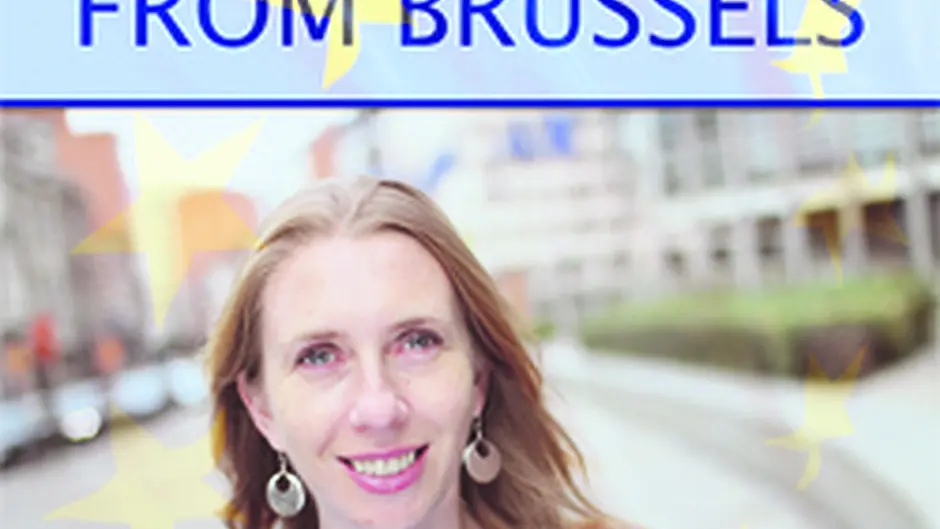EU Agriculture Ministers travelled to Brussels on March 6th for the second Council meeting under the Maltese presidency, where the future of the Common Agricultural Policy (CAP), implications of the UK’s departure from the EU and animal welfare issues dominated the discussions.
EU Agriculture Ministers travelled to Brussels on March 6th for the second Council meeting under the Maltese presidency, where the future of the Common Agricultural Policy (CAP), implications of the UK’s departure from the EU and animal welfare issues dominated the discussions.
Delegations broadly supported a strong, well-financed EU farm policy for the period post-2020, while there was a chorus of voices from Central and Eastern Member States calling for a level-playing pitch in terms of direct income support, with Poland’s Minister Krzysztof Jurgiel saying the Commission ‘must finalise the process of convergence in direct payment rates for farmers across the EU.’
Just five weeks after the launch of the public debate on modernising and simplifying the CAP, EU Farm Commissioner Phil Hogan said he was in ‘listening mode,’ adding that the Ministerial exchange of views ‘provided a useful contribution to the on-line consultation that has already garnered around 13,000 responses.’ Speaking to reporters in the margins of the Council, Hogan said further simplification for farmers and administrations was the ‘ultimate objective.’
Malta’s Parliamentary Secretary for Agriculture and Fisheries (current Council chairman) Roderick Galdes said the ‘EU farming sector has big challenges ahead … as politicians, we have an opportunity to set a vision for the future, we must constantly improve our policies so that EU agriculture and rural areas can continue to thrive and generate growth, employment and welfare,’ he added.
But the implications of Brexit, including an EU budget without the UK’s net contribution, were on delegations’ minds in discussions on the CAP post-2020. Hogan said budgetary issues underpinned the debate, particularly at a time ‘when there are a lot more proposals than money.’
Following a series of Brexit-related meetings on both agri-food and fisheries issues with his counterparts from Spain, Malta, Estonia and Scotland, Irish Agriculture Minister Michael Creed said he plans to ‘build further on these contacts with other key Member States in the coming weeks.’ The bilateral meeting with his Spanish counterpart was a ‘very useful opportunity to identify common concerns,’ the Macroom man outlined, adding that both sides ‘agreed that we will work towards building a common platform involving the main countries operating within the UK 200-mile fishery limits.’
Mr Creed added: ‘The EU fishing industry is taking a similar approach and our combined efforts will strengthen our delivery of the EU fishing priorities in the Brexit negotiations.’
NGOs urge end to live exports
Animal welfare organisations called on the Commission to propose to end live animal exports from the EU to Turkey, the Middle East and northern Africa as they released results of an eight-month investigation showing illegal and inhumane mishandling and slaughter of European livestock. The investigation coordinated by Animals International (AI), Tiershutzbund Zurich-Animal Welfare Foundation (TSB-AWF) and Eurogroup for Animals includes footage showing transport and slaughter methods in breach of EU regulations and international standards. In a campaign entitled ‘Stop the trucks’ – which has already garnered support from more than 750,000 EU citizens – the coalition calls on decision-makers to encourage a transition to a carcass-only trade with these importers.
‘Animals raised in European care are being transported in manners that are in breach of EU regulations and they are enduring horrific slaughter practices in breach of international agreements,’ Animals International EU director Gabriel Paun said. ‘Not only is this illegal, it is also immoral and unnecessary as all of the cited destination countries also import lots of chilled and frozen meat.’
• Rose O’Donovan is editor of the Brussels-based publication AGRA FACTS and a regular contributor to the video platform www.vieuws.eu/food-agriculture/









